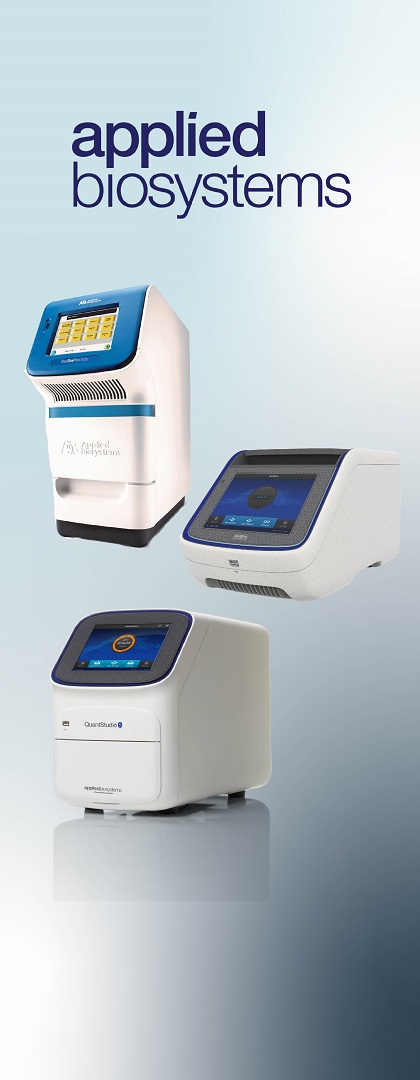
Overview of Genetic Laboratory Equipment
Genetic laboratories require a variety of specialized equipment to conduct research and diagnostics. These tools are essential for tasks such as DNA sequencing, genetic analysis, PCR amplification, and more.

DNA Sequencers
- Next-Generation Sequencers (NGS): High-throughput machines for sequencing large genomes.
- Sanger Sequencers: Used for smaller sequencing projects and validation.
PCR Machines
- Standard PCR Thermocyclers: For amplifying DNA.
- Real-Time PCR Systems: For quantitative analysis of DNA and RNA.
Centrifuges
- Microcentrifuges: For small sample volumes.
- High-Speed and Ultracentrifuges: For separating substances of varying densities.
Electrophoresis Equipment
- Gel Electrophoresis Systems: For DNA, RNA, and protein separation.
- Capillary Electrophoresis: For higher resolution and automation.
Spectrophotometers and Fluorometers
- UV-Vis Spectrophotometers: For measuring nucleic acid concentration and purity.
- Fluorometers: For sensitive detection of fluorescent markers.
Automated Liquid Handling Systems
- Pipetting Robots: For high-throughput sample preparation.
- Automated Workstations: For integrated processing of samples.
Microscopes
- Fluorescence Microscopes: For observing fluorescently labeled samples.
- Confocal Microscopes: For high-resolution imaging of genetic material.
Incubators and Shakers
- CO2 Incubators: For growing cell cultures.
- Orbital Shakers: For mixing and aeration of cultures.
Bioinformatics Tools
- Computers and Servers: For processing and analyzing genetic data.
- Software: For sequence alignment, genome assembly, and data visualization.
Reagents and Consumables
- DNA and RNA Extraction Kits: For isolating nucleic acids.
- PCR Reagents: For DNA amplification.
- Sequencing Reagents: For preparing samples for sequencing.
DNA Sequencers
- Next-Generation Sequencers (NGS): High-throughput machines for sequencing large genomes.
- Sanger Sequencers: Used for smaller sequencing projects and validation.
PCR Machines
- Standard PCR Thermocyclers: For amplifying DNA.
- Real-Time PCR Systems: For quantitative analysis of DNA and RNA.
Centrifuges
- Microcentrifuges: For small sample volumes.
- High-Speed and Ultracentrifuges: For separating substances of varying densities.
Electrophoresis Equipment
- Gel Electrophoresis Systems: For DNA, RNA, and protein separation.
- Capillary Electrophoresis: For higher resolution and automation.
Spectrophotometers and Fluorometers
- UV-Vis Spectrophotometers: For measuring nucleic acid concentration and purity.
- Fluorometers: For sensitive detection of fluorescent markers.
Automated Liquid Handling Systems
- Pipetting Robots: For high-throughput sample preparation.
- Automated Workstations: For integrated processing of samples.
Microscopes
- Fluorescence Microscopes: For observing fluorescently labeled samples.
- Confocal Microscopes: For high-resolution imaging of genetic material.
Incubators and Shakers
- CO2 Incubators: For growing cell cultures.
- Orbital Shakers: For mixing and aeration of cultures.
Bioinformatics Tools
- Computers and Servers: For processing and analyzing genetic data.
- Software: For sequence alignment, genome assembly, and data visualization.
Reagents and Consumables
- DNA and RNA Extraction Kits: For isolating nucleic acids.
- PCR Reagents: For DNA amplification.
- Sequencing Reagents: For preparing samples for sequencing.
How to Choose the Right DNA Sequencer for Your Lab
- Compare different models and brands.
- Consider throughput, read length, accuracy, and cost.
Advances in PCR Technology: What’s New?
- Explore recent innovations in PCR techniques.
- Discuss digital PCR and its applications.
Centrifuges: A Comprehensive Guide for Genetic Research
- Explain different types of centrifuges and their uses.
- Tips for maintenance and calibration.
The Role of Automated Liquid Handling in Genomic Research
- Benefits of automation in reducing human error.
- Case studies of labs that improved efficiency with automated systems.
Fluorescence Microscopy: Techniques and Applications in Genetics
- Overview of various fluorescence microscopy techniques.
- Examples of genetic research utilizing fluorescence microscopy.
Buying Guide
- Budget Considerations: How to balance cost with functionality.
- Brand Reviews: Analysis of leading brands in genetic lab equipment.
- User Testimonials: Feedback from actual users in research labs.
Maintenance and Support
- Regular Maintenance Tips: How to keep your equipment running smoothly.
- Troubleshooting Common Issues: Solutions to frequent problems.
- Service Contracts: Importance of service contracts and extended warranties.
Contact and Consultation Services
- Offer expert consultation for labs looking to set up or upgrade their equipment.
- Provide a contact form for inquiries and personalized advice.
Useful Resources
- White Papers and Research Articles: In-depth studies and findings.
- Webinars and Workshops: Educational events on the latest technologies.
- Forums and Discussion Groups: Community support for troubleshooting and sharing tips.
By incorporating this detailed and structured information, your website can serve as a valuable resource for anyone interested in genetic laboratory equipment.
How to Choose the Right DNA Sequencer for Your Lab
- Compare different models and brands.
- Consider throughput, read length, accuracy, and cost.
Advances in PCR Technology: What’s New?
- Explore recent innovations in PCR techniques.
- Discuss digital PCR and its applications.
Centrifuges: A Comprehensive Guide for Genetic Research
- Explain different types of centrifuges and their uses.
- Tips for maintenance and calibration.
The Role of Automated Liquid Handling in Genomic Research
- Benefits of automation in reducing human error.
- Case studies of labs that improved efficiency with automated systems.
Fluorescence Microscopy: Techniques and Applications in Genetics
- Overview of various fluorescence microscopy techniques.
- Examples of genetic research utilizing fluorescence microscopy.
Buying Guide
- Budget Considerations: How to balance cost with functionality.
- Brand Reviews: Analysis of leading brands in genetic lab equipment.
- User Testimonials: Feedback from actual users in research labs.
Maintenance and Support
- Regular Maintenance Tips: How to keep your equipment running smoothly.
- Troubleshooting Common Issues: Solutions to frequent problems.
- Service Contracts: Importance of service contracts and extended warranties.
Contact and Consultation Services
- Offer expert consultation for labs looking to set up or upgrade their equipment.
- Provide a contact form for inquiries and personalized advice.
Useful Resources
- White Papers and Research Articles: In-depth studies and findings.
- Webinars and Workshops: Educational events on the latest technologies.
- Forums and Discussion Groups: Community support for troubleshooting and sharing tips.
By incorporating this detailed and structured information, your website can serve as a valuable resource for anyone interested in genetic laboratory equipment.

